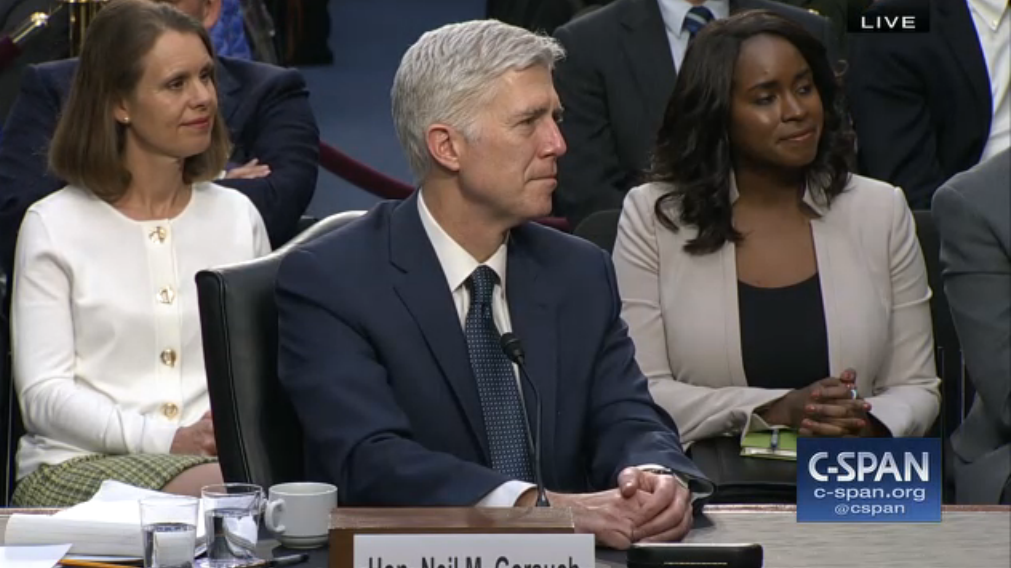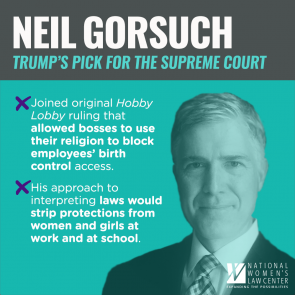In this moment, the future of our rights, our bodily autonomy, our freedom feels uncertain.
The National Women’s Law Center will be vigilantly defending against attacks on our rights and for opportunities to expand them.
In this moment, the future of our rights, our bodily autonomy, our freedom feels uncertain.
The National Women’s Law Center will be vigilantly defending against attacks on our rights and for opportunities to expand them.
Will you join us in restoring our country back to its promise for all of us? Every donation is 100% tax-deductible.


By Amy Matsui (National Women’s Law Center) & Sarah Lipton-Lubet (National Partnership for Women & Families)
Judge Gorsuch’s record on women’s legal rights shows that time and time again, his approach to the law favors employers, politicians, and other powerful entities, and hurts the individuals who rely on the law for protection. And time and time again, this approach disadvantages women.
When we consider Judge Gorsuch’s record along with his refusal to provide anything but platitudes about his judicial philosophy during his Senate hearings, we must conclude that if Judge Gorsuch is confirmed to the Supreme Court, women would feel the devastating impact of his decisions for generations to come.